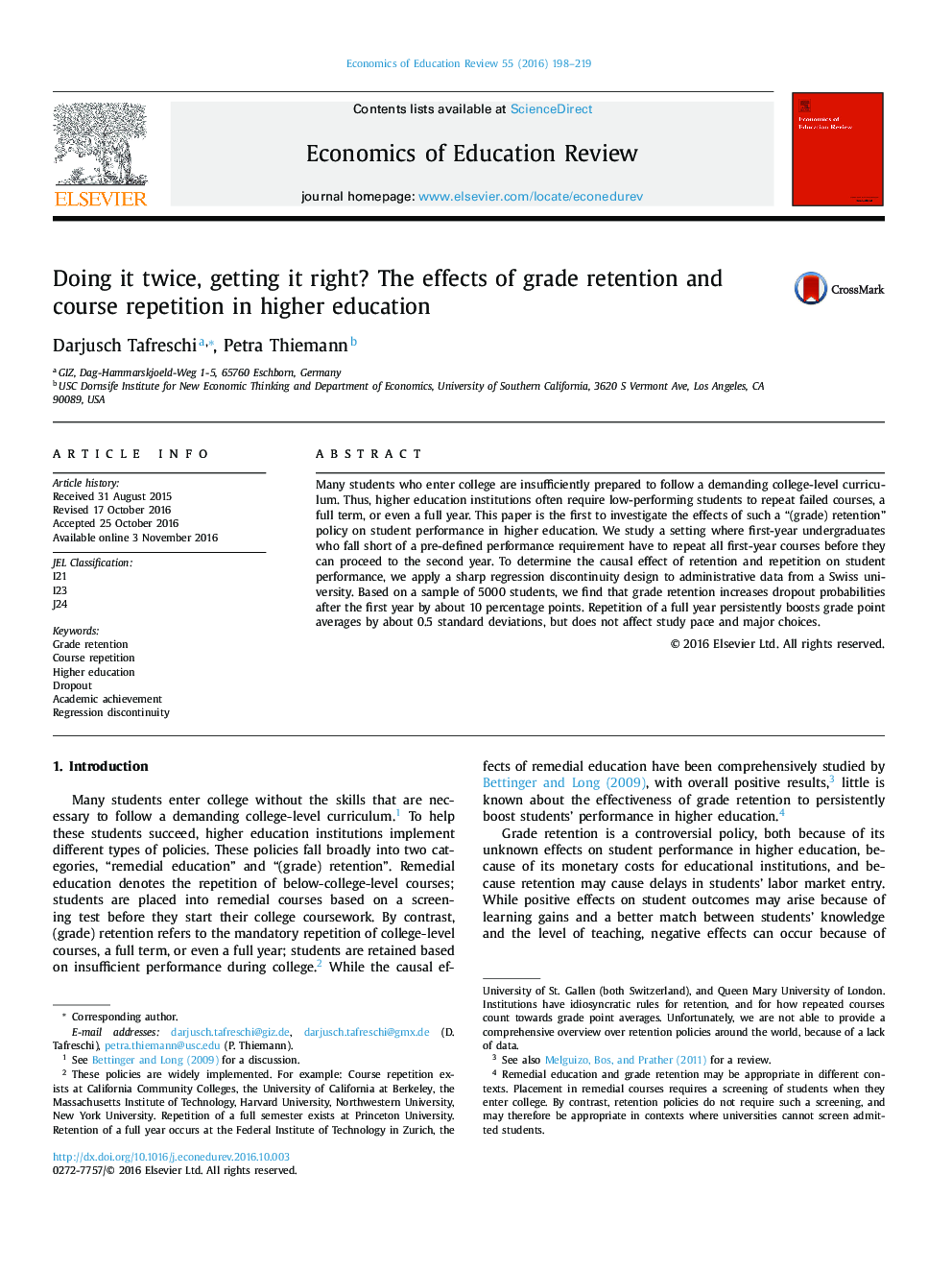| Article ID | Journal | Published Year | Pages | File Type |
|---|---|---|---|---|
| 4938291 | Economics of Education Review | 2016 | 22 Pages |
Abstract
Many students who enter college are insufficiently prepared to follow a demanding college-level curriculum. Thus, higher education institutions often require low-performing students to repeat failed courses, a full term, or even a full year. This paper is the first to investigate the effects of such a “(grade) retention” policy on student performance in higher education. We study a setting where first-year undergraduates who fall short of a pre-defined performance requirement have to repeat all first-year courses before they can proceed to the second year. To determine the causal effect of retention and repetition on student performance, we apply a sharp regression discontinuity design to administrative data from a Swiss university. Based on a sample of 5000 students, we find that grade retention increases dropout probabilities after the first year by about 10 percentage points. Repetition of a full year persistently boosts grade point averages by about 0.5 standard deviations, but does not affect study pace and major choices.
Keywords
Related Topics
Social Sciences and Humanities
Economics, Econometrics and Finance
Economics and Econometrics
Authors
Darjusch Tafreschi, Petra Thiemann,
